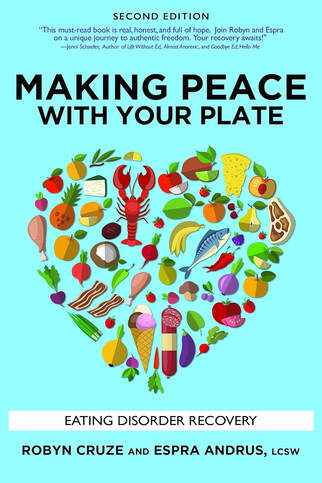Eating Disorder Family Coaching
Robyn Cruze MA, ED Coach
The treatment and long-term recovery strategy for an eating disorder is crucial for a family for several reasons:
- Holistic Healing: Eating disorders don't just affect the individual; they impact the entire family. Effective treatment strategies often involve family therapy, which addresses the dynamics and communication patterns within the family that may contribute to or be affected by the disorder.
- Education and Understanding: A comprehensive treatment plan educates the family about the nature of eating disorders. This understanding is vital for creating a supportive home environment that fosters recovery.
- Improved Communication: Treatment often includes developing healthier communication skills. This helps family members express their concerns and support in more constructive ways, reducing misunderstandings and conflict.
- Early Intervention and Prevention: Involving the family in treatment can lead to earlier intervention, which is crucial for a better prognosis. Additionally, it helps in identifying and addressing factors that might put other family members at risk.
- Emotional Support for All: Eating disorders can be emotionally taxing for the entire family. Treatment provides not only support for the affected individual but also emotional support and coping strategies for family members.
- Restoring Healthy Relationships: The strain of an eating disorder can disrupt family relationships. Treatment strategies aim to repair and strengthen these bonds, which is essential for the emotional well-being of all family members.
- Addressing Co-occurring Issues: Often, eating disorders co-occur with other mental health issues such as anxiety or depression. A comprehensive treatment strategy addresses these co-occurring issues, benefiting the individual and the family’s overall mental health.
- Promoting Long-term Recovery: Family involvement in treatment can significantly enhance the long-term success of recovery. It ensures that the individual has a supportive environment, which is crucial for maintaining progress after treatment ends.
- Empowering the Family: Treatment equips family members with the tools and knowledge to effectively support their loved one. This empowerment reduces feelings of helplessness and fosters a proactive approach to recovery.
- Building a Supportive Environment: Finally, involving the family in treatment helps create a home environment that supports healthy eating behaviors and body image, reducing the risk of resuming unhealthy behavior.
|
Robyn Cruze teamed up with therapist and friend Espra Andrus to provide expert guidance for those seeking eating disorder recovery, their loved ones, and treatment professionals.
This revised edition offers new insights and stories, updated approaches to nutrition, and answers to such pressing questions within the eating disorder community as: Does the word "recovered" have a place in the recovery process? What about notions of "good," "bad," "health," and "unhealthy" foods? How does soothing the self rather than fighting the eating disorder fit into recovery? Making Peace with Your Plate helps unshackle us from our fears, anxiety, and the need to control by providing proven strategies for recovery and taking back our power from the illness. |
Click on Book to Purchase
|



